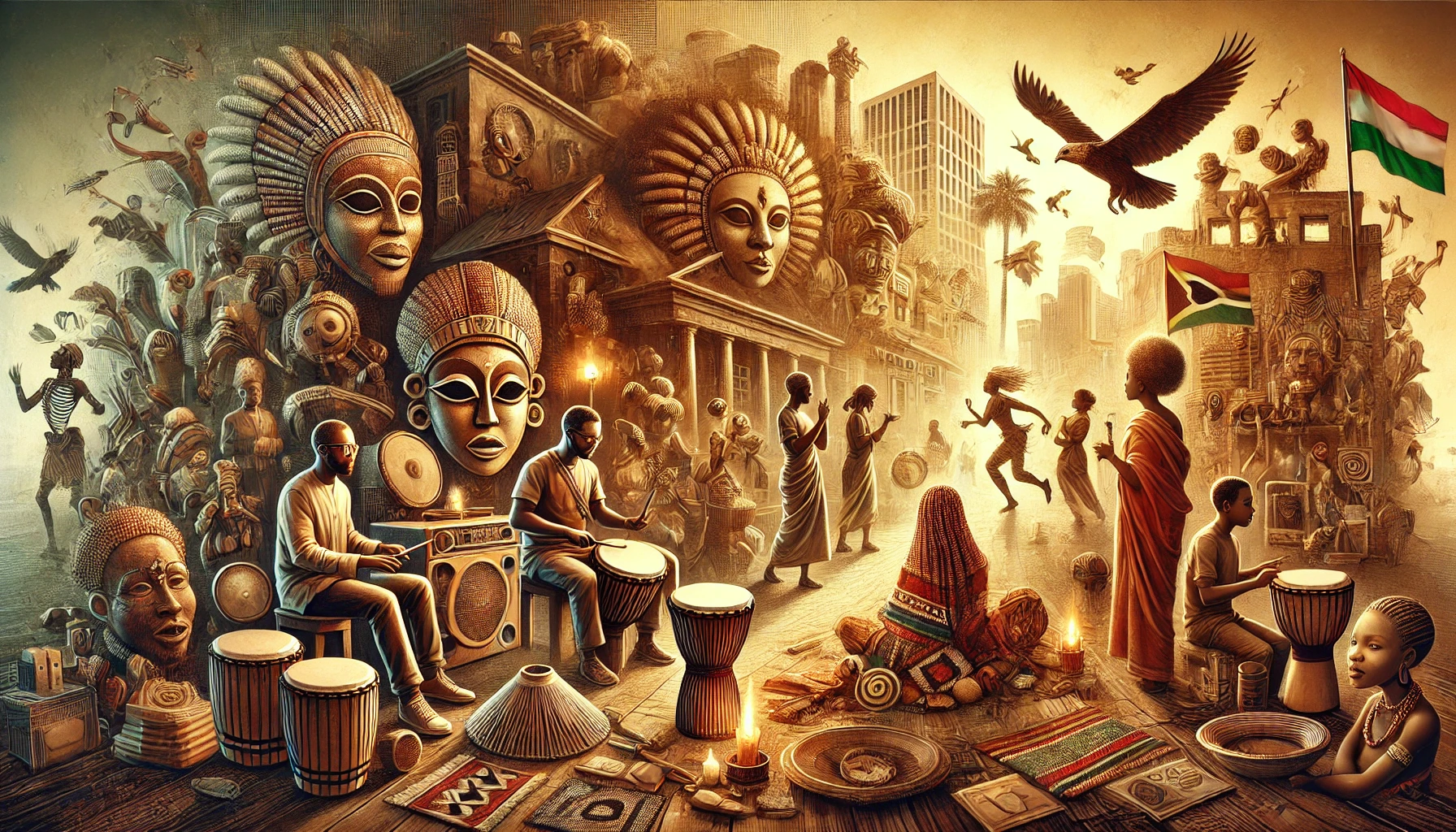For centuries, the African diaspora—dispersed through migration, trade, and forced displacement—has carried the continent’s rich cultural heritage across the world. But colonization, globalization, and assimilation led to the fading of many African traditions, leaving gaps in identity and history.
Today, from New York to Brazil, London to the Caribbean, African descendants are on a powerful journey of revival and reconnection. Through art, spirituality, music, language, and heritage practices, the diaspora is bringing back forgotten African traditions, ensuring they remain a living, evolving legacy for future generations.
🌍 1. African Spirituality: The Reawakening of Ancestral Wisdom
Across the diaspora, African spiritual systems once erased by colonialism and religious conversion are seeing a resurgence.
🔹 In Cuba, Haiti, and Brazil, the Yorùbá-derived Ifá, Santería, and Candomblé faiths continue to thrive, blending African deities (Orishas) with Catholic influences.
🔹 In the United States, Afro-Caribbean, and Latin American communities, spiritual traditions like Hoodoo, Vodun, and Kemetic spirituality are being reclaimed, practiced, and taught openly.
🔹 Ancestral veneration, a fundamental part of many African belief systems, is becoming a key practice among younger generations seeking guidance, protection, and wisdom from those who came before them.
🎭 2. Traditional African Music and Dance: A Global Renaissance
Afro-descendants worldwide are bringing back the rhythm and movement of their ancestors through music and dance.
🔹 Afrobeats, Amapiano, and Highlife have become global phenomena, deeply connected to the drum patterns and storytelling techniques of Africa.
🔹 In the Caribbean and South America, the Gwo Ka (Guadeloupe), Capoeira (Brazil), and Garifuna drumming (Belize, Honduras) all maintain direct African lineage.
🔹 Afro dance styles, such as Azonto, Gwara Gwara, and Ndombolo, are taking over social media, reintroducing African movement and rhythm to global audiences.
🖌️ 3. African Art and Textiles: A Return to Indigenous Craftsmanship
From Adire (Nigeria) and Kente (Ghana) to Mudcloth (Mali), African textile-making is experiencing a modern revival.
🔹 Diaspora designers are blending African prints with contemporary fashion, making African aesthetics mainstream.
🔹 Artists and activists are reviving Adinkra symbols (Ghana) and Nsibidi writing (Nigeria, Cameroon) in graphic design, tattoos, and calligraphy.
🔹 Handmade crafts, from beadwork to woven baskets, are thriving as younger generations seek sustainable, ancestral alternatives to mass production.
📖 4. Language and Storytelling: Reclaiming Lost Words
One of the greatest losses for the diaspora has been language. However, efforts to revive African languages are gaining traction.
🔹 Language learning apps now offer Yoruba, Swahili, Twi, Zulu, and Igbo, helping the diaspora reconnect with ancestral tongues.
🔹 Afrofuturist literature and oral storytelling traditions are making a comeback through podcasts, spoken word, and digital platforms.
🔹 Names and proverbs are being reintroduced, with many African descendants reclaiming their original ancestral names as a form of cultural resistance.
🍲 5. African Cuisine: A Taste of Home Reclaimed
African food culture has long influenced Caribbean, Latin American, and Southern U.S. cuisine. However, there is now a deliberate revival of traditional African cooking techniques and ingredients in the diaspora.
🔹 African fusion restaurants featuring Egusi soup, Jollof rice, Fufu, and Suya are thriving in major cities worldwide.
🔹 Health-conscious movements are promoting Baobab, Fonio, and Teff grains, bringing back nutrient-rich ancient African superfoods.
🔹 Cooking schools and social media chefs are teaching diasporans how to cook traditional African meals from scratch.
The revival of forgotten African traditions is more than just a trend—it’s a reclamation of identity, history, and pride. Whether through spirituality, music, fashion, language, or food, the African diaspora is ensuring that the heartbeat of Africa never fades but continues to evolve across generations.
This movement is not just about the past—it’s about the future of African heritage worldwide.
🌍 Are you reconnecting with African traditions? Share your journey in your email to us! Write feedback@africanewstracker.com



